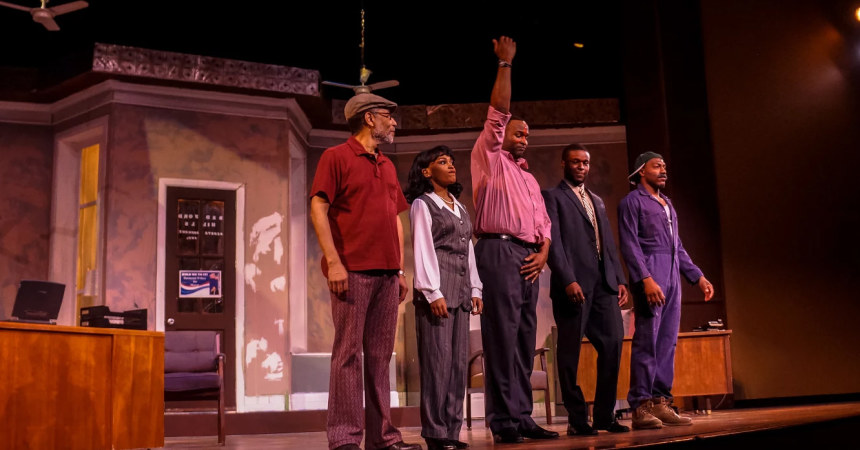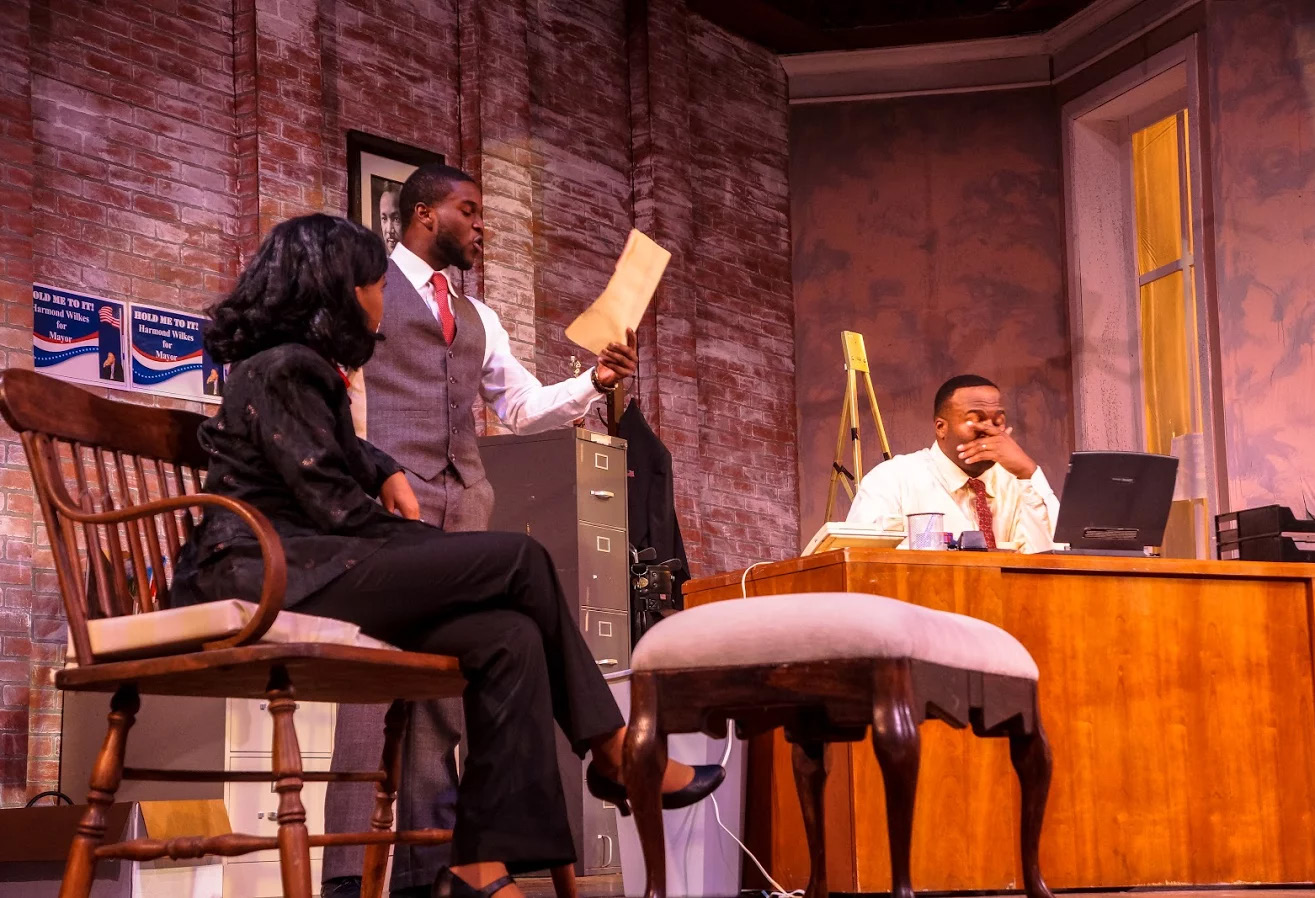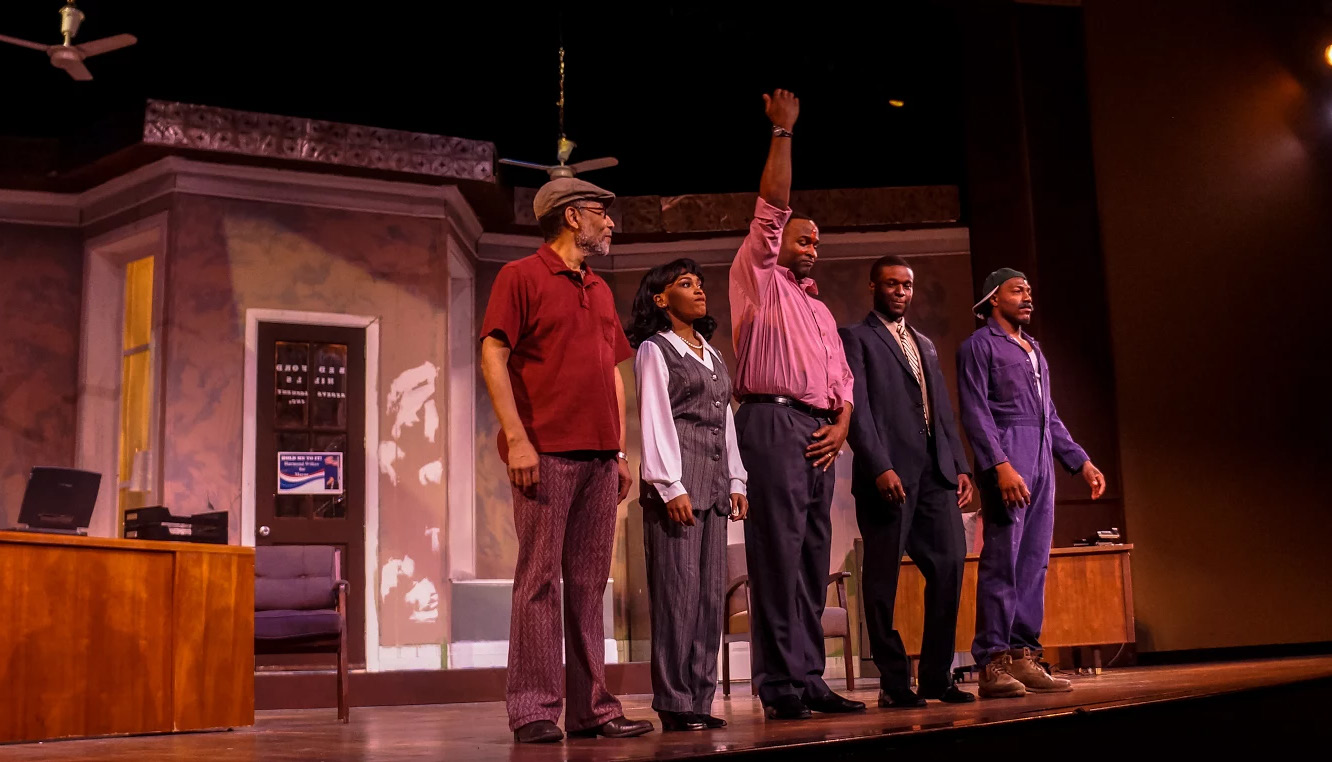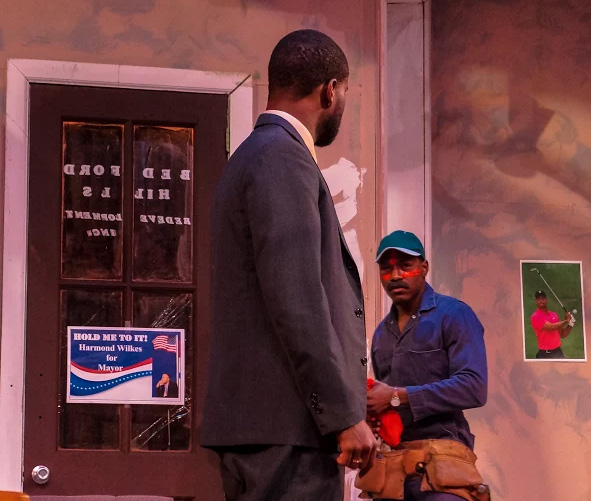
Stage play brings redevelopment issue into focus

Harmond Wilks(Deshaun Green) , Mame Wilks (Yesenia Ozuna) and Roosevelt Hicks (Darren Murphy) discuss the situation the characters have put themselves into.

Sterling Johnson (Mark Nicolas) stares down Roosevelt Hicks (Darren Murphy) after a heated debate over their outlooks on life.
By Lyric Mattair
Outlook writer
For three months, Deshaun Green stayed in character. The role that he was about to play was too important for him to do otherwise.
He played Harmond Wilks, a Pittsburgh, Pa., businessman who aspired to be the city’s first Black mayor. Wilks was an advocate resident and businessman in the city when developers sought to dismantle their property to clear the way for redevelopment.
This past Wednesday night, the FAMU Essential Theatre brought the story to life on the stage at the Charles Winter Wood Theatre in front of an enthusiastic audience.
Wilks’ role was pivotal and Green wanted to have it down pack.
“It took time, practice and dedication,” said Green, who has been acting for more than three years. “I kept my script with me everywhere I went, even if I went in the bathroom, it was with me.”
The play was set in a community known as “the hill” during the 1950s.
The role that Green performed has been played out countless times in real life around the country. Black communities often have been torn down, most times to establish housing and business developments or even parking lots.
The story that was told on stage gave the actors an opportunity to depict its relevance to society.
“This happens everywhere,” said Tevin King, assistant stage manager. “It happens in Miami and Orlando. It basically happens in every Black neighborhood; where people come in and want to buy it out, tear it down and bring in something new or bring in new people.
“They don’t redevelop it for Black people but redevelop it to make more money.”
Playing the role of Elder Joseph Barlow, one of the property owners whose house was about to be taken down, actor Olusegun Williams had the crowd captivated. The moment was real, prompting several people in the audience to nod in agreement with his every word about the issue.
“You’re running for mayor, Harmond?” he asked in a “matter-of-fact” tone. “They will never give a Black man that many keys (to the city) and the authority to have that much say-so in the community.”
Williams played his part ‘to the T.’ So did the rest of the cast, much to the liking of the audience.
Stage manager Tiana Jarrel attributed the audience’s attentiveness to the reality of what they witnessed.
“The play had a lot to say about justification in Black neighborhoods,” Jarrell said. “It’s a lot of truth that’s actually going on now. It deals with staying true to your roots and learning how to compromise for the old and the new.”








